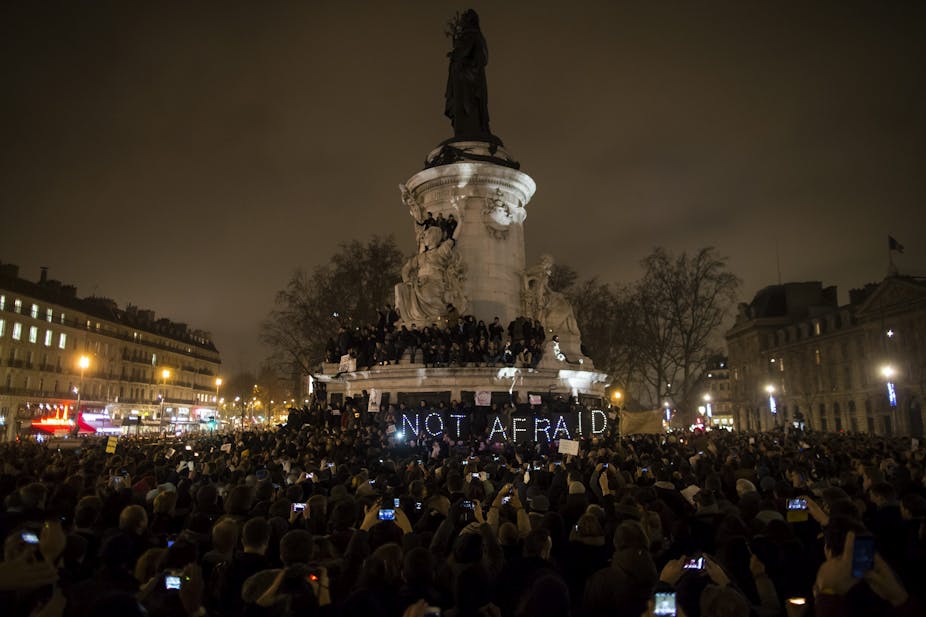It’s evening now, and news reports are emerging that French police have homed in on an area north-east of Paris after two brothers suspected of being behind the Charlie Hebdo attack were spotted at a petrol station in the region.
Despite the tension of these unfolding events, things have remained remarkably calm since extremists entered the Paris office of Charlie Hebdo and executed ten employees and two policemen. The attack caused shock, but not panic, throughout France and the rest of the world.
Charlie Hebdo had notoriously published satirical cartoons depicting the prophet Muhammad. The extremists were Muslims. I have been in Paris all this week, and was in the streets of Paris on Wednesday afternoon and evening.
The reaction has been calm, rational and defiant. There is no sign of panic. On the contrary, a large, but restrained, crowd gathered at the Place de la Republique on Wednesday night.
They held signs reading “Je suis Charlie”. All around Paris today there are “Je suis Charlie” posters in shop windows. It is difficult to find any place where these posters are not to be seen.
The military presence is now very obvious. Armed police and members of the army are visible everywhere in Paris. Universally the call is for calm and, in particular, not to take revenge.
Charlie Hebdo will issue a special edition next Wednesday: the plan is to print one million copies.
There are about four million Muslims in France. Generally speaking, they are well integrated. It is difficult to avoid drawing a parallel with Jews in late 19th-century Germany.
It emerged that one of the policemen killed in the attack was himself a Muslim. How it plays out from here will be interesting. There is a serious risk that some people will ignore the crucial distinction between Muslims and Muslim extremists.
No rational person would approve the conduct of these extremists; no rational person would imagine that all Muslims are also extremists.
The fact is that every group that espouses strong religious views will attract a few followers who may become extremists: a brief survey of recent history shows Christian extremists (Northern Ireland from 1916 to the mid-1970s), Hindu extremists (India-Pakistan partition in 1948 and in Gujurat province in 2002); Jewish extremists (in Israel during the past 50 years) etc.
Of course, all extremists have reasons for their conduct. Sometimes extremism is a response to a history of repression; sometimes it is an over-reaction by unbalanced individuals; sometimes it is just absurd violence, which lacks any possible justification.
Wednesday’s attack looks like the third category. On any view, cartoons that insult a religious leader cannot justify murder. The public response is a clear reflection of two things: first, revulsion at such brutal killing; second, a genuine concern about the importance of free expression.
Because the attack looks so senselessly brutal, there is a risk that someone will try to exploit it for political advantage. Right-wing leader Marine Le Pen has called for the death penalty to be reintroduced. It remains to be seen whether there will be any more exaggerated political response in France.
It is worth recalling the extreme legislative response to September 11: America passed the Patriot Act; Australia passed security legislation that would alarm most people if they understood it.
Fear presents unique political opportunities: all you have to do is persuade the public that you are protecting them from a great danger, and they will support you. This sentiment was clearly articulated by German Nazi politician Hermann Goering, and has been exploited by politicians of left and right before and since.
The attack on Charlie Hebdo’s office was a terrible tragedy. The response in Paris shows how outraged people are that free speech should result in slaughter. It would be an insult to the memory of the slain if the attack is used to diminish civil rights in the name of enhancing security.

